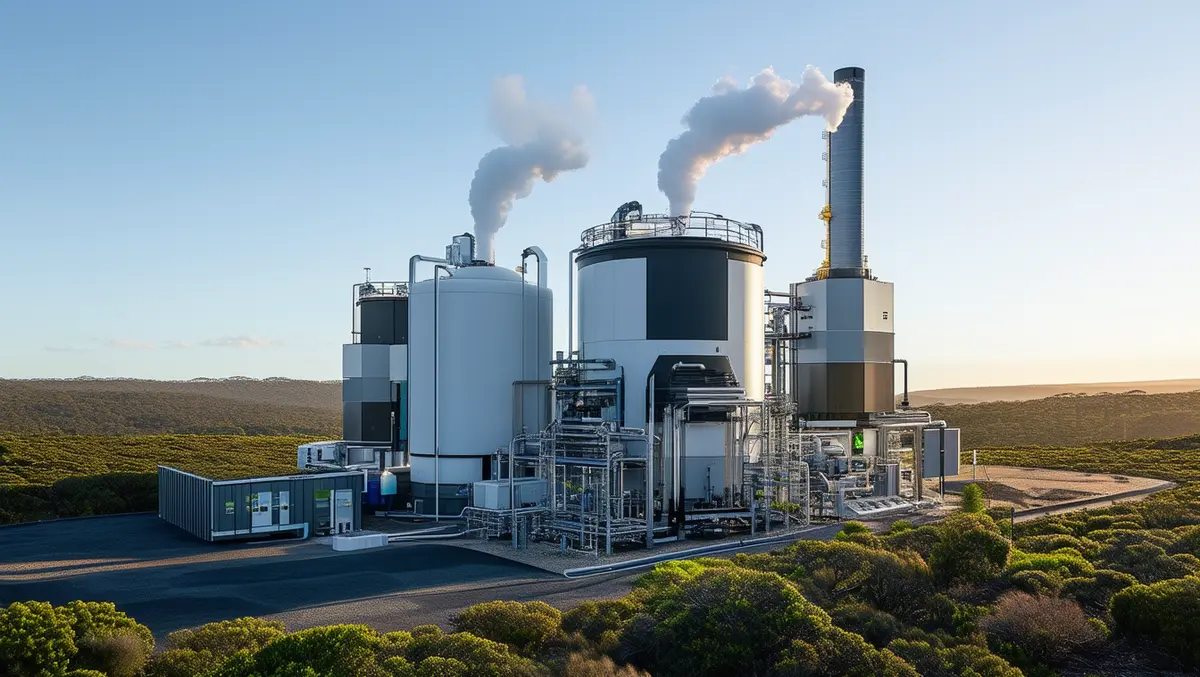
Fugu raises Seed funding for CO2 capture with Investible lead
An Australian company, Fugu, has announced its Seed funding round, led by Investible, with significant participation from Australian investors Jelix and Electrifi Ventures, and London-based Counteract, a venture capital specialising in carbon removal.
Fugu was founded by Mac Thompson and Luke Marshall, both instrumental in the Sun Cable project, which is developing the world's largest solar plant. The duo is now focused on their new initiative, Fugu, which aims to create cost-effective and energy-efficient solid direct air capture (S-DAC) systems.
The newly raised capital will support Fugu in expanding its team and scaling up its units, with plans to sell CO2 to their first customer in Sydney. From their research and development facility in Glebe, the company aims to grow rapidly and intends to produce thousands of machines capable of extracting millions of tonnes of CO2 by the end of the decade.
Ben Lindsay, Investment Manager at Investible, commented on the investment, "We are thrilled to support Fugu on their journey to develop mass-manufacturable artificial lungs for the planet. Led by a proven team of bold and capable founders, Fugu is creating cost-effective and energy-efficient solid direct air capture (S-DAC) systems. These systems are designed for rapid deployment, leveraging existing supply chains to serve a variety of industries, including green fuels, food and beverage, and more."
Thompson and Marshall, building on lessons learned from developing the Sun Cable project, aim to tackle climate change by directly removing carbon dioxide from the atmosphere. According to Dr Luke Marshall, co-founder of Fugu, "This challenge is extremely difficult. To hit our climate targets, we will now need to plant approximately three new Amazon rainforests by 2050, on top of decarbonising industry and society - that will be incredibly hard to do in such a short timeframe. We need new technologies that can accomplish this task at a fraction of the cost and difficulty. Furthermore, some industries will never be completely decarbonised so we must provide a green low cost solution for them."
Marshall emphasised the scalability and deployability of Fugu's technology. The machines are made of mass-manufactured parts, making them suitable for deployment anywhere in the world. The technology aims to lower the cost of carbon capture to make green CO2 competitive with fossil-derived energy. The filters in Fugu's systems use solid sorbent technology that can be upgraded as newer sorbents become available.
Mac Thompson, also a co-founder of Fugu, highlighted the market potential for CO2, stating, "CO2 is an enormous market. Thousands of companies around the world use it in its pure form to make chemicals, beverages and pharmaceuticals. There are many others who want to stick it deep underground, where it will turn into rock to be permanently removed from the atmosphere. And big global players like Airbus are investing heavily in turning it into sustainable fuels for jets and global shipping. Fugu is gearing up to be the key supplier of clean CO2 from the atmosphere for these offtakers."
Looking ahead, Fugu plans to produce 2,000 shipping container-sized machines annually from each of its manufacturing facilities located in major global carbon dioxide markets. The company projects that these efforts will lead to the extraction of one gigatonne (1 billion metric tonnes) of CO2 annually by 2032.


